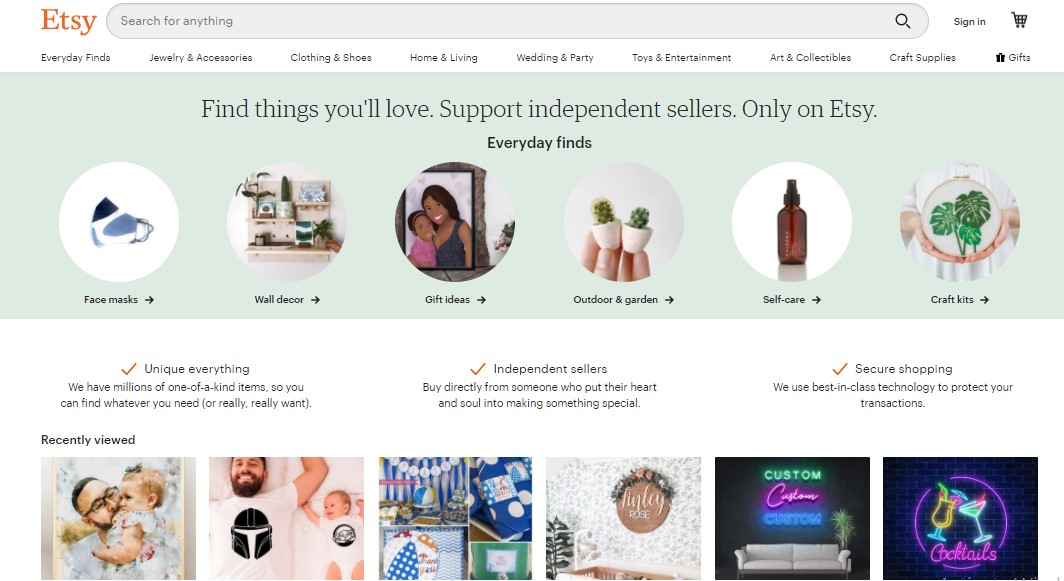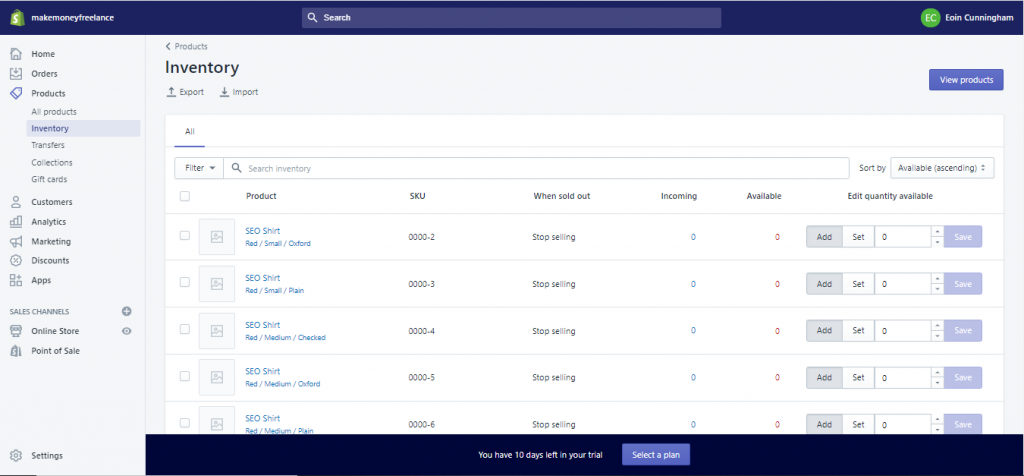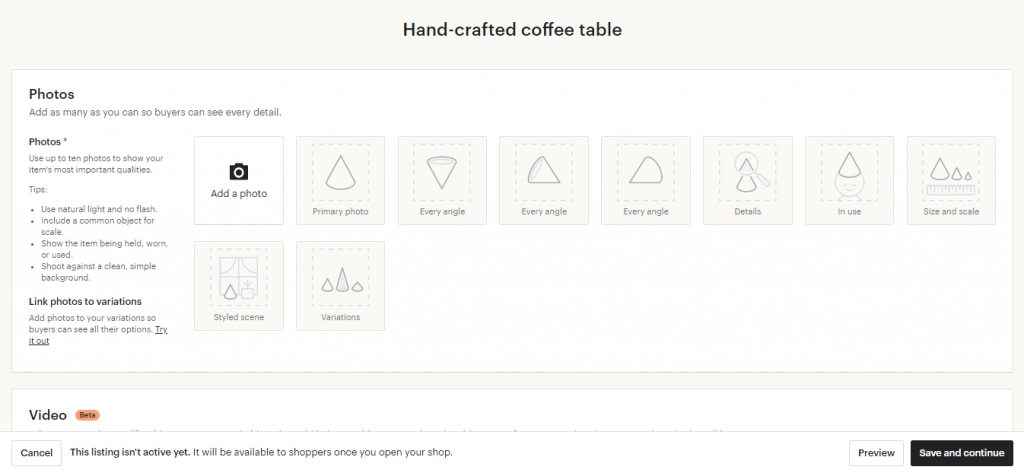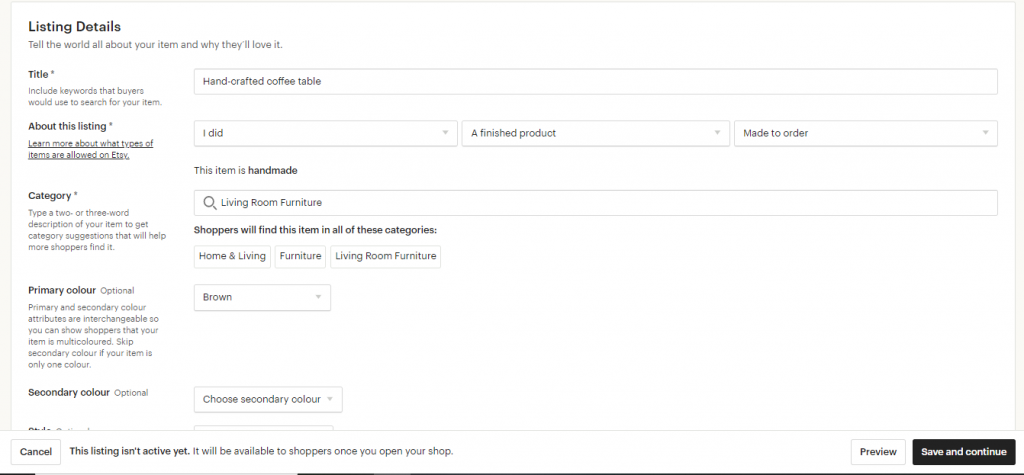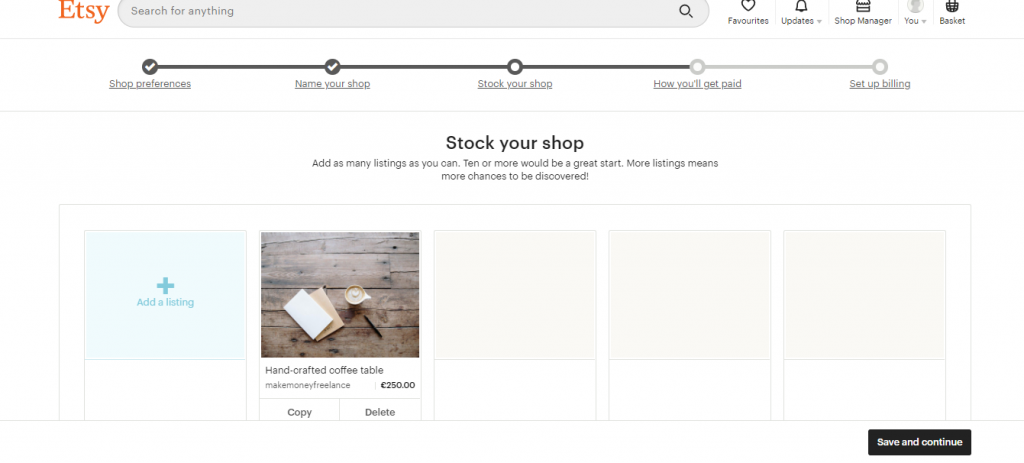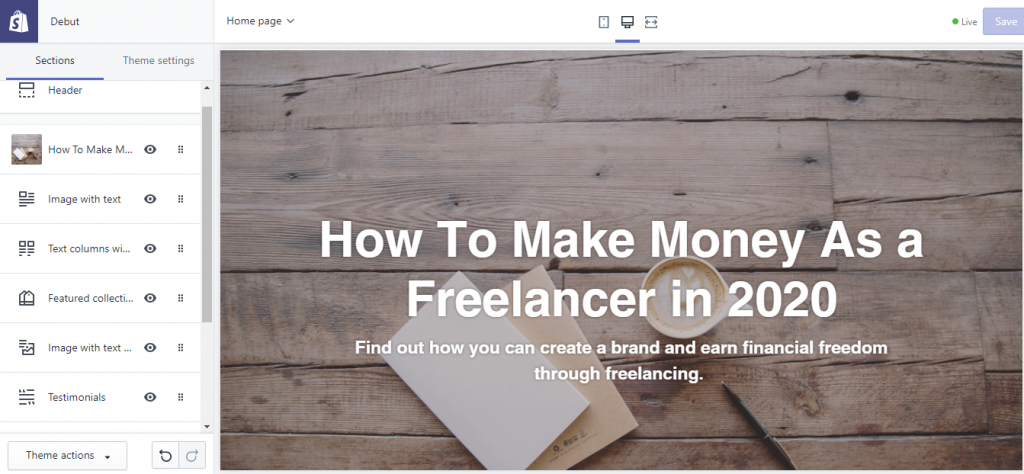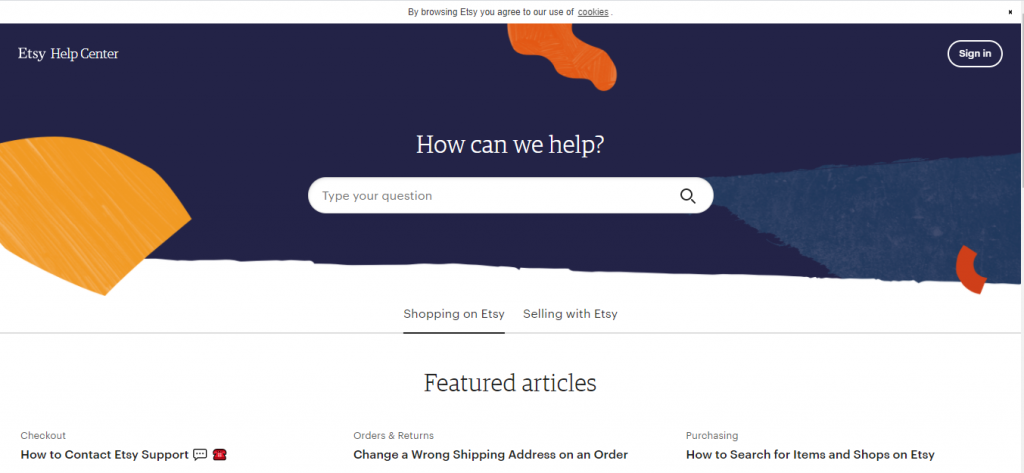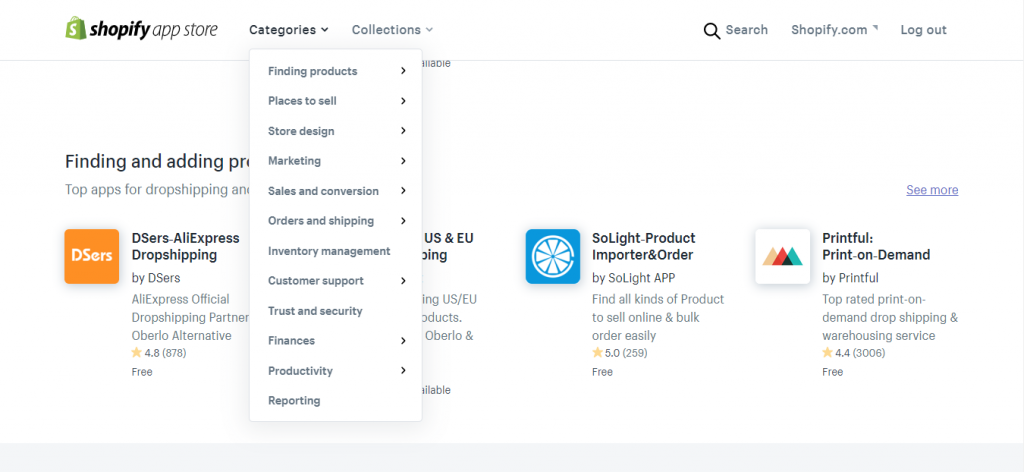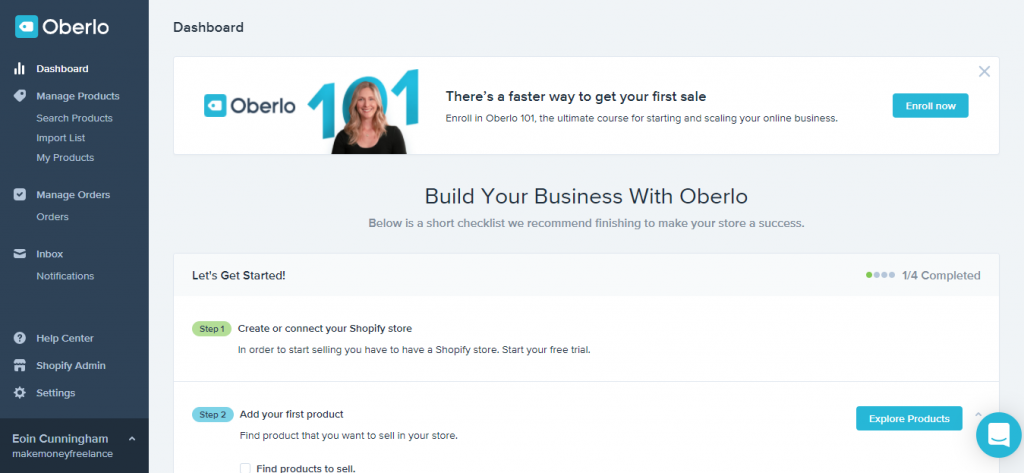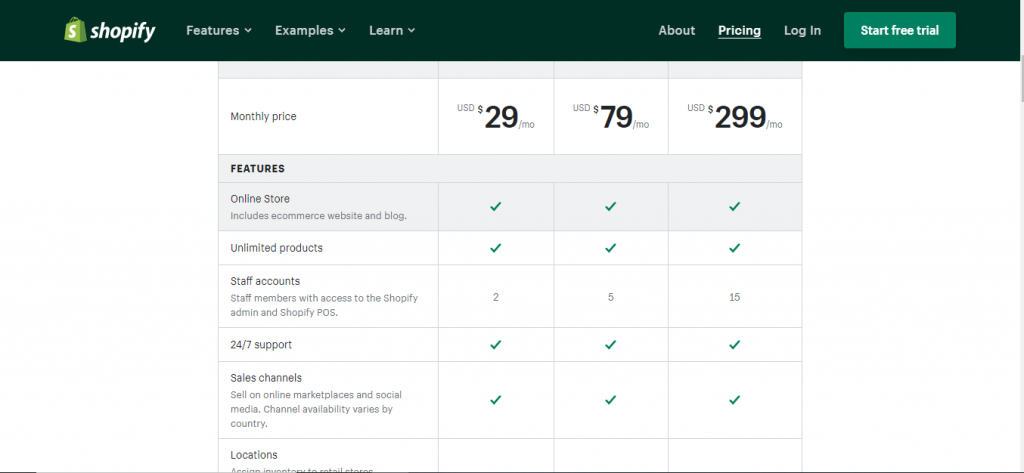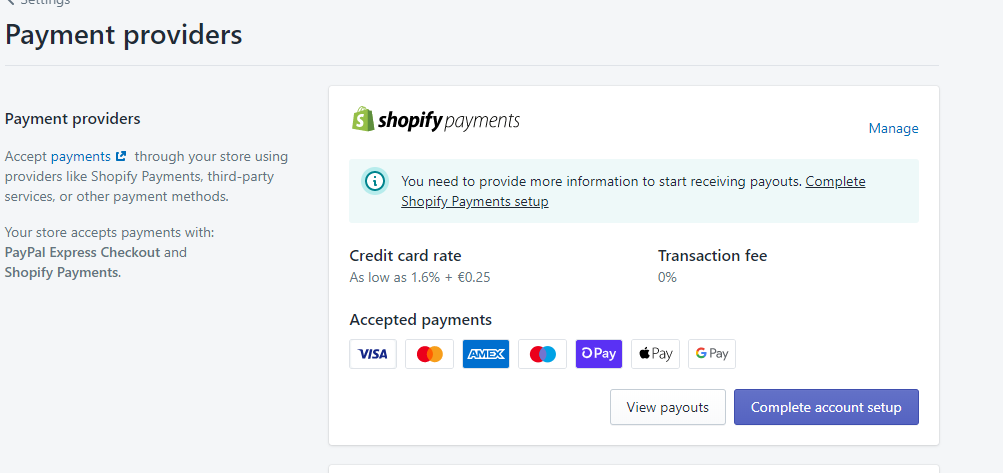- Main Differences Between Shopify vs Etsy
- What are Shopify and Etsy and who are they for?
- Shopify vs Etsy - Which has better eCommerce Business Features?
- Design
- Support | Winner: Shopify
- App/Integrations | Winner Shopify
- Dropshipping: Winner - Shopify
- Shopify vs Etsy | Pricing
- Payment Process, Aggregators and Gateway Services
- User Experience (Ease of Use) | Winner: Etsy
- FAQs About Shopify vs Etsy
- Buying Decision
Last Updated on April 22, 2023 by Ewen Finser
Today, we’re going to be comparing two popular eCommerce solutions – Shopify vs Etsy. When it comes to deciding between this pair, you need only ask yourself one thing: Do I need a platform, or do I need a marketplace? You see, for most people, a basic solution isn’t going to work long term.
But, who said any entrepreneur is thinking long term? Lots of online business people are what many would consider “moonlighters”. During the day they’re working 9-5 (“to stay alive” and all that), but come nightfall they’re dedicated to their side hustle.
There are PLENTY of ecom platforms out there. Only one has a true NETWORK effect that can catapult your growth. Shopify has thousands of developers building apps and a robust ecosystem of integrations. This cannot be ignored. #ShopifyWins
And a lot of people like to make money while performing tasks in areas they’re passionate – like making handmade artsy gifts. Such people are usually operating on a small scale, which means that a marketplace is exactly what they need.
But other people, well, they may be moonlighters right now, but they’re working hard to turn their hobby into a fully-fledged, sustainable enterprise run in daylight hours. And so, a marketplace isn’t gonna cut it for them.
They need a home base. A professional zone dedicated to growing a brand identity. An online storefront to attract traffic, segment leads, and earn conversions. A place where they have access to in-depth analytics and as a result a scalable solution.
Such people need a platform – not a marketplace. Keep reading to realize just how much.
Main Differences Between Shopify vs Etsy
The main differences between Shopify vs Etsy are:
- Shopify is an eCommerce platform, whereas Etsy is an online marketplace.
- Shopify license holders are charged with building their audience using SEO and paid advertising to attract web traffic, whereas license holders already have an audience (Etsy’s web traffic, which merchants pay a fee toward maintaining via paid advertising).
- Shopify is a robust and dynamic platform catering to all business models, whereas Etsy primarily caters to vendors selling artisanal products.
- Shopify comes equipped with a host of eCommerce features, whereas Etsy offers such features to a much more basic extent.
- Shopify offers advanced customization software, whereas Etsy offers basic eCommerce business features.
What are Shopify and Etsy and who are they for?
Shopify is an eCommerce platform, whereas Etsy is an online marketplace. (If you don’t know what an online marketplace is – think eBay and Amazon.) With Shopify, you can create an eCommerce business. And, you don’t need to use Shopify’s API to do so.
The Shopify app comes equipped with drag and drop functionality, free and paid themes, as well as endless possibilities in terms of integrating with third-party design apps, so it’s easy to create a standalone online store.
In contrast, Etsy offers none of these eCommerce CMS features. But, it does offer a marketplace where you can buy and sell products online. The Etsy eCommerce marketplace is ideal for those interested in exchanging artisanal offerings as a primary part of their business model.
The advantage of using Etsy over Shopify is that you don’t need to build an eCommerce website to sell products. And, the advantage of using Shopify over Etsy is that you have a much more scalable eCommerce solution. Crucially, with a website (Etsy Pattern lets you build a website, but it’s basic compared to Shopify).
So, Shopify is ideal for someone seeking eCommerce software to create a standalone store. While Etsy is perfect for people looking to their handmade offerings using a marketplace (where their only expense is an Etsy account subscription).
Shopify vs Etsy – Which has better eCommerce Business Features?
An Argument for Shopify
Shopify vs Etsy isn’t even a contest when it comes to selling. For starters, vendors use Etsy to sell predominantly arts and crafts type goods. So, straightaway Shopify has an advantage because you can sell whatever you want through its platform. There’s also the issue of advanced sales functionality.
With Shopify, you’re able to make use of multi-channel selling functionality. Multi-channel selling is essential for business nowadays. Being able to promote and sell your offering on multiple platforms increases the number of traffic you can attract as well as leads you can generate. Anyway, Shopify does this excellently.
Also, the platform provides store owners with free SSL certs (same goes for Etsy!) to increase the security of payment gateways, boasts a jam-packed app store full of helpful integrations, and even provides cart abandonment functionality. Which, can help you make more sales through email automated reminders as well as cart saving.
Overall, Shopify just offers way more than Etsy when it comes to selling across all platforms. There is an unlimited number of products available to be sold on all plans, discount codes available for customers, and robust “brick and mortar” Shopify Point of Sale (POS) features.
You might also be interested: Shopify vs Shopify Plus – Everything You Need to Know (2020)
An Argument for Etsy
Etsy is known as a niche eCommerce marketplace specializing in the sale of artisanal products, but it has recently diversified its offering to cater (somewhat) to all tastes. (Provided, of course, that you’re willing to settle for a handmade SEO guide being shipped out to you rather than just purchasing an alternative guide instantly via eBook.)
Shopify, on the other hand, is an eCommerce platform that doesn’t specialize in such offerings. And so, if you are into handmade, vintage, or unique gifts – you’ve got an advantage when you choose Etsy over Shopify.
Shopify requires you to attract your own web traffic to promote and sell your products and or services. With Etsy, you don’t have this problem because Etsy itself will attract the web traffic, from which you can segment leads and earn conversions.
In other words, you don’t need to know anything about backend eCommerce website features or SEO. Which, is a major advantage of using Etsy over Shopify.
It’s also super easy to design your Etsy featured shop. There are only extremely basic options for you to choose from, such as inserting product images, a product video ad, and product titles. The fact that the Etsy design system doesn’t let you customize page layout is also an added bonus for non-tech savvy people.
Superiorly designed stores will possess higher conversion rates because a professional, aesthetic store inspires confidence. With Etsy only providing basic design elements, all store owners are on a level playing field in that regard.
Design
Shopify boasts superior eCommerce design options to Etsy. Why? Well, because Etsy only offers a standard template for sellers to edit.
Etsy lets you edit product descriptions, change images and that’s all good stuff. But, Etsy doesn’t let you re-design a page’s layout. And that’s where the Etsy design system differs from that of Shopify’s.
Shopify gives you complete control when customizing the appearance of your online store. So, if you’ve got design skills, or can afford to hire someone that does, you’ll be at an advantage selling with Shopify.
But, you can also tweak that argument to favor Etsy by highlighting how Etsy’s design UX is so straightforward that there’s no need for hiring an expert eCommerce designer.
Verdict | Shopify
So, ultimately, I think where Shopify accelerates out past Etsy is in the realm of your brand’s identity. It’s very difficult to stand out from the crowd given Etsy’s limited design template. The Etsy design services ensure every shop is the same – to its detriment.
Granted Etsy pattern is available to provide the functionality to make your store unique, but the Shopify design system is just far superior to give that argument weight.
Its eCommerce store builder offers “Drag and Drop” functionality. Which, allows you to design your online business’s home base while choosing from a selection of over 10 free and 50 paid themes. All Shopify themes come equipped with requisite “out of the box” eCommerce functionality relative to your industry. But, you’ll probably still need to visit the Shopify app store for some more powerful integrations.
Support | Winner: Shopify
Shopify offers better customer support than Etsy. The fact that it’s available 24/7 is a huge reason as to why. Being able to contact the Shopify support center at any time. Day or night. Knowing that there’ll be a Shopify support expert available to assist – is a luxury worthy of high praise.
But, let’s not be too harsh on Etsy. After all, the level of support people need to use Etsy is much lower because it’s designed to be easy-to-use. So, it makes sense that Etsy’s support network for sellers isn’t as robust as that of Shopify’s.
Plus, Etsy does have useful community forums. You can go on there and search for your problem. Or, look at the live feed to find important updates from other sellers. For example, one seller had a thread advising Etsy not to demand payment from vendors for risk-free ads.
There’s also an Etsy support email, phone number, and chat. Although, it’s admittedly unresponsive at times. You only have to go to Etsy’s community forum to notice that much.
In contrast, Shopify’s support is fast and reliable. The Shopify help center is also available over the phone and via customer Live Chat 24/7. You can shoot them an email, reach them using social media, or scan through the eCommerce platform’s forum to find what you’re after.
Overall, the Shopify support features are more robust than Etsy’s. I think that’s summed up by the advanced support specialist being available on higher-tiered Shopify plans.
There are PLENTY of ecom platforms out there. Only one has a true NETWORK effect that can catapult your growth. Shopify has thousands of developers building apps and a robust ecosystem of integrations. This cannot be ignored. #ShopifyWins
App/Integrations | Winner Shopify
The Shopify app marketplace is bursting at the seams when it comes to integrations for your eCommerce business. And, with over 3,200 apps available for integration with eCommerce stores – it’s safe to say: “there’s something for everyone”.
In contrast, Etsy’s app store hasn’t nearly as many options. Particularly when it comes to eCommerce design apps. You see, Shopify offers over (roughly) 1,700+ design-related apps. Whereas Etsy offers only a fraction of that figure.
Instead, the eCommerce solution offers a basic, functional interface. But, it does still have design apps available. For instance, Printful and Vela.
Anyway, there’s also the issue of eCommerce apps offering automation. For example, apps that aid in email marketing, multichannel/omnichannel selling, and creating sales funnels. Also, not to mention, eCommerce apps to aid in tracking, sales, and code. In all these verticals, Shopify’s app marketplace provides much greater choice.
But, that’s not a sleight on Etsy. Who do offer integrations to help with email newsletters (Mad Mimi), social commerce (Outfy), and even affiliate marketing (referral candy)?
The Shopify API is also available for even more advanced eCommerce website customization should you struggle to find the tools you crave.
Verdict | Shopify
Long story short, Shopify offers a larger app store. You’re almost guaranteed to be able to integrate the functionality you need. But, that doesn’t mean Etsy is bad. Or, that it doesn’t provide top-notch eCommerce apps. It just means that Shopify provides more options than Etsy when it comes to integrations, so you’re more likely to find what you need.
Dropshipping: Winner – Shopify
Shopify is in the running to be the most popular eCommerce dropshipping solution out there. But, online marketplaces like Etsy’s are always there or thereabouts down the homestretch. Yet, there is one undebatable reason as to why I feel Shopify reigns supreme in this matchup.
Beautiful But Deadly… | Market Value, Retail Price and Profit
Etsy’s products are beautiful? Yes – but, they’re also expensive. Etsy products usually have a higher retail price, than say, products from a Shopify store with the same offering. Why? Well, when dropshipping you’ve got to make the venture worth your while.
So, retailers buy a product from a wholesaler and tack on a number or two to beef up the price tag because it’s all about earning a profit. Right? Of course, but it’s harder to do that with Etsy due to all the extra charges. Particularly when you’re selling in bulk.
So, Etsy products tend to be sold above market value. Whereas, Shopify stores don’t have to deal with the added charges (listing fees, promotional fees, etc.) so they can afford to be much more competitive within the market when it comes to pricing.
Finally, Etsy charges offsite ad fees of between 12-15% of your store’s total income depending on whether you’ve earned more than 10,000$. So, that’s more money you’re going to lose.
Ultimately, I think being able to dropship from suppliers outside of Etsy’s marketplace closer to market value is a huge advantage of Shopify not to be understated. Hence, Shopify is the winner when setting up a dropshipping business.
Shopify vs Etsy | Pricing
Here’s a screenshot of Shopify’s pricing:
Click here to read Etsy’s full explanation of its pricing.
Payment Process, Aggregators and Gateway Services
Before signing up with either Shopify or Etsy you first need to understand the cost of running your store. And that can be quite different depending on your eCommerce solution of choice.
You see, Shopify requires you to integrate with a payment aggregator to avail of payment gateway services. For example, PayPal and Stripe. But, they do charge a transaction fee to use all payment providers except for Shopify Payments.
Anyway, payment processing with Etsy is performed using Etsy Payments. Vendors can use this payment system to pay using credit or debit card, PayPal, Apple Pay, Google Pay, Etsy Credit, Etsy gift card, and or bank transfer.
Here’s what Etsy vendors are expected to pay:
- Transaction Fees
- Advertising and Promotional Fees
- Listing Fees
- Subscription Fees (Etsy Plus 15$ per month)
- In-Person Selling Fees (transaction fee of 5% NA)
- Payment Processing Fees
- Delivery Fees
Also, Shopify operates off of a subscription basis. Meaning you’ve got to sign up to a plan and pay an annual, or monthly subscription fee, depending on the plan you choose.
Verdict | Please Read
Crucially, when deciding between Shopify and Etsy you need to think of your online store’s eCommerce business model. Specifically, how you’re going to manage increased traffic and growing leads. Because once the former and latter skyrocket, so too will your sales volume.
So, is this a side hustle for some extra cash? Or, are you looking to create an online enterprise dealing in artisanal offerings?
If you’re taking the Enterprise route, then Etsy is just not a good deal. To be blunt, its .20 cent listing charge, 5% transaction fee, and 3% + 0.25 gateway processing charge (this varies depending on your location and deposits may be required from buyers) will take a toll on your pocket.
So, you could actually end up saving money in the long run with Shopify. The eCommerce platform demands a hefty upfront service charge, absolutely. But, its payment processing charge is lower than Etsy’s.
That is, of course, most noticeable when you choose Shopify Payments – which only charges 2.2% + 20 cents for payment processing. But, Shopify doesn’t have listing or transaction fees regardless.
On the flipside, Etsy is ideal for people looking to cash in on their hobby. It’s easy to get started. For instance, you don’t need to get too bogged down in marketing or store design. Also, you don’t need to pay a subscription fee. And when you consider that Shopify Payments is only available in certain nations, Etsy is a no brainer for store owners processing a low volume of orders.
Note: For people using Etsy’s POS hardware to sell in-person through “Square reader,” there is no 5% fee per transaction. But, there is an in-person selling charge.
User Experience (Ease of Use) | Winner: Etsy
I’ve read a lot that Shopify is easy to use, but I honestly found it to be a bit like WordPress. It’s kind of tough to get the hang of admin panel functionality, reporting features, and some other system features.
But, it’s easy to use the front end features to customize your store. So, maybe that’s what people are referring to when they say Shopify’s UX is simple.
In the case of Etsy, it’s simple to get started. You’re literally just filling in the blanks when posting your Etsy gifts to be sold. Probably the most stressful aspect in the entire Etsy set up process is configuring Etsy Payments, but even that’s easy enough.
There are PLENTY of ecom platforms out there. Only one has a true NETWORK effect that can catapult your growth. Shopify has thousands of developers building apps and a robust ecosystem of integrations. This cannot be ignored. #ShopifyWins
FAQs About Shopify vs Etsy
What Exactly Does Shopify Do?
Shopify gives you the features you need to create an online store. A Shopify store enables you to sell products and or services online through your website, which you’ll create using Shopify’s CMS system.
How Much Does it Cost to Have a Shopify Store?
Shopify pricing varies depending on the plan you select. The Shopify pricing model is structured so that more expensive plans provide a more robust eCommerce solution. But to give you a figure it’ll cost somewhere between 9$-299$.
Is it Better to Sell on Etsy or Shopify?
Selling on Shopify or Etsy comes down to one thing – the growth of your eCommerce store. Shopify’s bulk editor, order management, and features and benefits make it an extremely scalable solution. So, it’s ideal for medium businesses to enterprises. In contrast, Etsy’s simplicity, orientation toward hand-crafted goods, and ease of use make it a great option for solopreneurs and small businesses with few orders.
Can You Get Scammed on Etsy?
Yes, you absolutely can get scammed on Etsy. Particularly using bank transfer. You most certainly need to be most wary of dropshipping stores.
Buying Decision
Ultimately, whether you choose Shopify or Etsy should be based on your goals. Are you looking to make some money selling handmade goods, or are you looking to make a living selling handmade goods?
If it’s the former then you should go with Etsy. An Etsy shop is easy to create, maintain, and sell using. You don’t need to worry about eCommerce site design, business models, or even search functionality. Just create your product and sell it through Etsy’s marketplace. The hardest part with Etsy is just figuring your way around its marketplace features.
In contrast, Shopify’s eCommerce platform is much less straightforward but much more practical for those looking to make a full-time online business. Shopify offers robust business features, an app marketplace jam-packed with useful integrations and Shopify Payments will save you money as your business grows.



